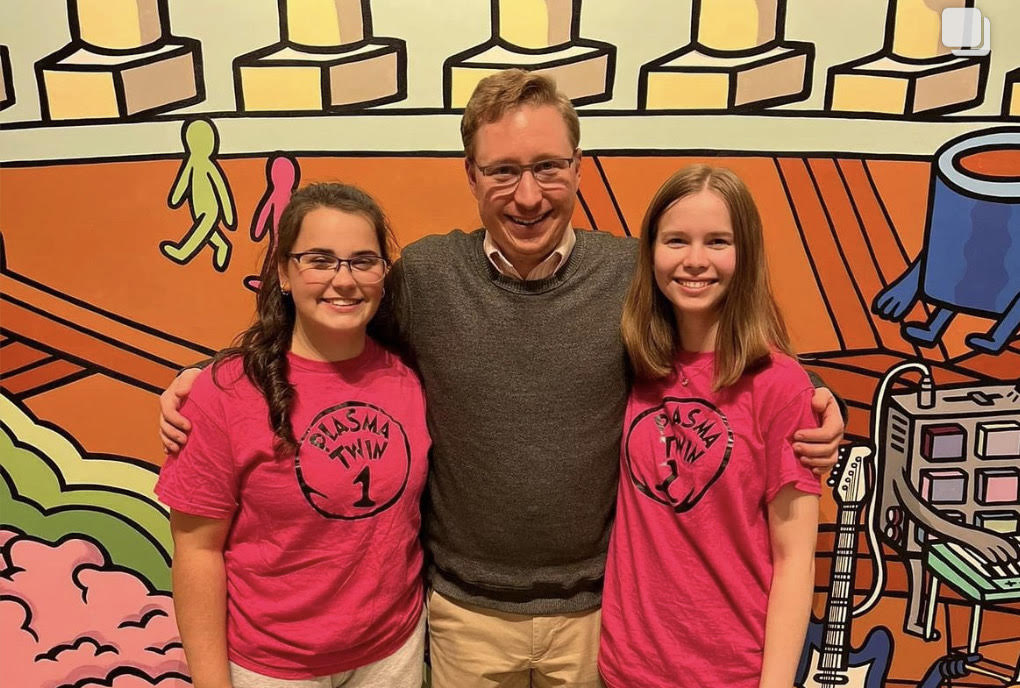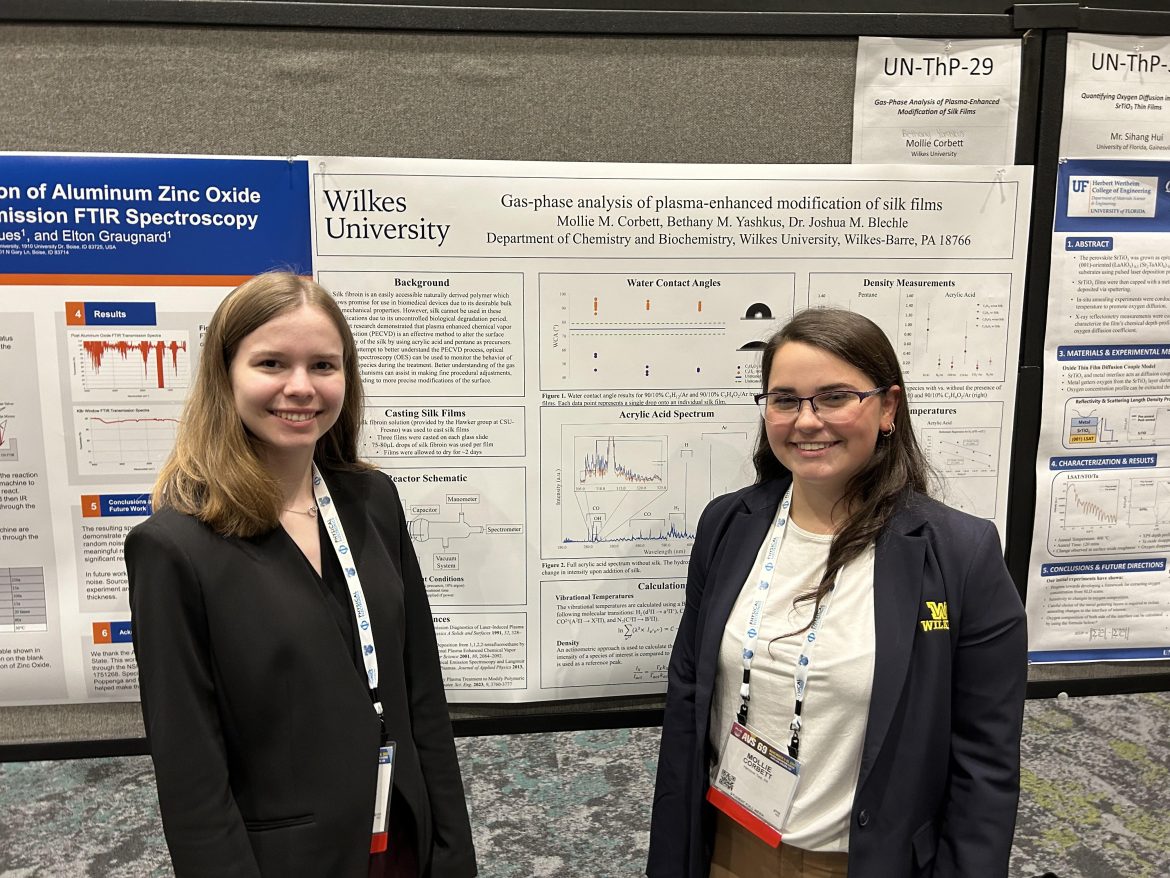Going into their first academic conference, Mollie Corbett and Bethany Yashkus weren’t sure what to expect. Little did they know, they would come out of the experience with not just their first conference under their belts, but also a Platinum Award for Outstanding Student Presentation.
Corbett, a junior chemistry major, and Yashkus, a sophomore biochemistry major, were invited by Josh Blechle, associate professor of chemistry, to attend the American Vacuum Society (AVS) Conference in Portland, Oregon. The AVS Conference is an interdisciplinary conference that spans the fields of chemistry, engineering, physics and beyond. Blechle considers the conference to be “the best place to meet, interact, and engage with people” in his field.

Blechle, who attended the AVS Conference himself as a graduate student, has brought his students to the conference for the past three years. This year, Blechle invited Corbett and Yashkust to join and present on a project they had worked on in collaboration since June 2023. Considering the substantial amount of work they had completed over the summer, Blechle thought it was a natural next step for them to share their research at the AVS Conference.
Corbett and Yashkus’ project involved studying the use of silk in medical devices such as dissolvable sutures or knee replacements. Currently, silk is not used in medical devices because its lifespan cannot be controlled. “You don’t want your knee to dissolve while you’re walking,” explained Corbett.
Corbett and Yashkus’ research explored how plasma causes the structure of the silk to change. When they combined a chemical compound named pentane with plasma, it created a hydrophobic surface which repelled water. They also experimented with combining plasma with a chemical compound called acrylic acid, which created a hydrophilic surface meaning it easily mixed with and dissolved in water. Since the body is largely made up of water, a hydrophobic surface might be applied in medical devices designed to last for a long time, such as a knee replacement. On the other hand, a hydrophilic surface can be applied to medical devices like dissolvable sutures, since water in the body breaks them down over time.
The pair compiled their work, developed a poster and presented their research at the conference. Despite it being their first time presenting at a conference, the pair won the Platinum Award for Outstanding Student Presentation.
“We were already celebrating just getting through our first conference and presentation,” said Corbett. “We were really excited that we were able to accomplish this for it being our first time.”
Blechle is extremely proud of his students’ accomplishment, but he considers the experience of attending the conference to be the most valuable takeaway. “I hope more than anything that it gives them confidence to keep doing these types of things, to keep putting themselves out there, and to keep doing research and doing research conferences,” Blechle said.
Besides presenting their own research, the conference allowed Corbett and Yashkus to network with others in their field, see what other types of research are being done, learn about graduate school programs and experience what it is like to be a scientist in a professional setting.
“I thought it was really cool to present our work, but also see what other people are doing within this area of chemistry and some of the concepts you are not really taught in school,” said Yashkus. Some of the presentations delved into topics that the students had learned about in class, but other presentations covered topics that were completely new to them.
For students considering presenting their work at a conference, Corbett and Yashkus urge students to go out of their comfort zone and pursue the opportunity. Even though it felt intimidating at first, Corbett and Yashkus both remarked that they came out of the experience feeling more confident in themselves and their work as scientists.






